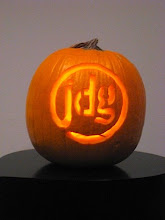In a recent seminar I presented to the DC Chapter of the American Marketing Association, I gave the attendees my perspective on the defining characteristics of a brand:
1. A Promise
2. An Identity
3. The Customer or Stakeholder Experience
4. An Asset with Equity
I cited the Interbrand study published in a 2007 Business Week magazine article that rated Coca Cola as the world’s number one brand with an estimated brand value of $65 billion. I also noted that guru investor Warren Buffet recently invested $6.5 billion for confectionery brands Mars and Wrigley.
For further proof that a brand is an asset with equity, I suggest you check out the June 26, 2008 Wall Street Journal article where it was reported that a brand that had fallen into bankruptcy and was thought to be dead, was resurrected by someone willing to spend millions of dollars on it.
2. An Identity
3. The Customer or Stakeholder Experience
4. An Asset with Equity
I cited the Interbrand study published in a 2007 Business Week magazine article that rated Coca Cola as the world’s number one brand with an estimated brand value of $65 billion. I also noted that guru investor Warren Buffet recently invested $6.5 billion for confectionery brands Mars and Wrigley.
For further proof that a brand is an asset with equity, I suggest you check out the June 26, 2008 Wall Street Journal article where it was reported that a brand that had fallen into bankruptcy and was thought to be dead, was resurrected by someone willing to spend millions of dollars on it.
The retailer Sharper Image was revived from its demise to become a “virtual brand” name with its moniker rented to other retailers. Hilco and Gordon Brothers paid about $49 million with about $33 million of this amount attributed to the Sharper Image brand name.
The buyers intend to pursue a brand-licensing investment strategy by selling the rights to use the brand name on products that will be manufactured and sold by other companies. James Salter, Hilco Consumer Capital Chief Executive, envisions Sharper Image products being sold via infomercials, websites and catalogs to consumers around the world.
The buyers intend to pursue a brand-licensing investment strategy by selling the rights to use the brand name on products that will be manufactured and sold by other companies. James Salter, Hilco Consumer Capital Chief Executive, envisions Sharper Image products being sold via infomercials, websites and catalogs to consumers around the world.
It seems a branding company can earn royalties in the range of 2% to 3% of the brand revenues. It all adds up to a nice piece of change for a recycled brand!



